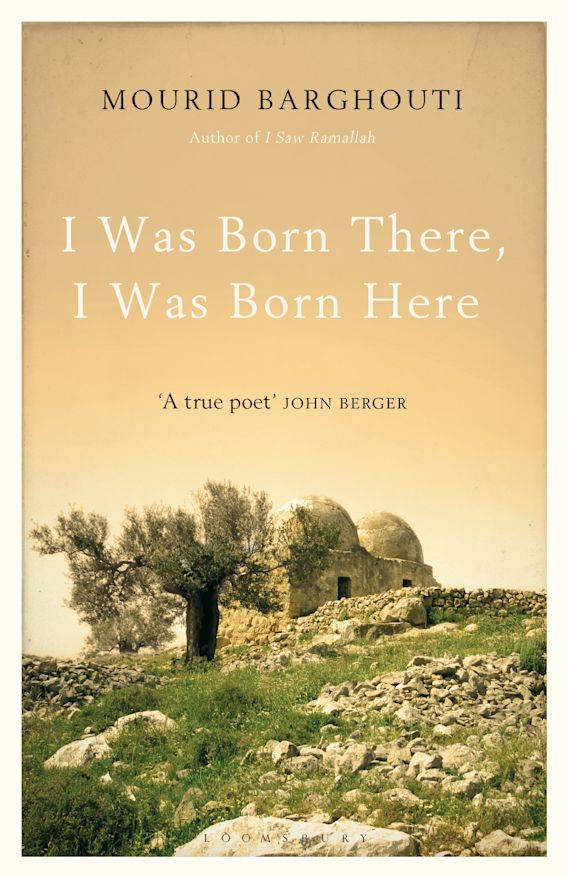
I Was Born There, I Was Born Here
Piney Kesting
Mourid Barghouti.
Bloomsbury, 2011.
“I want to write the history of things no one else will ever write for me. I want to carve the least of my feelings with a chisel on a stone next to the highway.”
—From I Was Born There, I was Born Here
In the summer of 1998, renowned Palestinian poet and author Mourid Barghouti (1944–2021) traveled to Ramallah with his son, Tamim, to obtain the 21-year-old’s Palestinian identity card. As he watched his son discover Palestine for the first time, Barghouti lamented no longer knowing the physical and emotional geography of his own homeland after being exiled for three decades, since the Occupation started in the 1960s: “I am now walking in Jerusalem as a father. Now my son walks beside me. I come burdened with my past. He starts from the white page of the future.” Barghouti’s journey traveling that summer in a shared cab from Ramallah to Jericho and avoiding Israeli checkpoints and blocked roads exposed the arduous daily life of Palestinians who confront life under Occupation with courage and dignity. Translated into English in 2011, this compelling, intimate story sadly rings as true today as it did nearly 25 years ago.
—Piney Kesting
You may also be interested in...

Ancient Egyptians Still Have Things to Teach Us
Socrates and other Greek thinkers admired Egypt for its philosophical tradition. This new translation of a manuscript as old as the pyramids shows us why.
Dissolved Monopoly’s Legacy Hinges on How India Honors Its Political Architecture
From the first fortified trading post in northeastern India, historian Rosie Llewellyn-Jones tracks the physical changes wrought by the English East India Company.
The Ebb and Flow of History on the Zambezi River
In tracing the past six centuries of history, historian Malyn Hewitt captures the cyclical rise and fall of the river and its people.